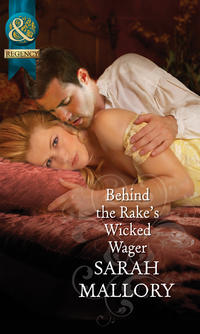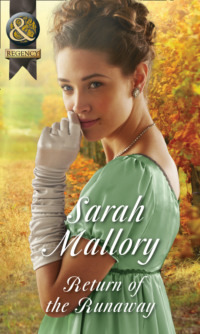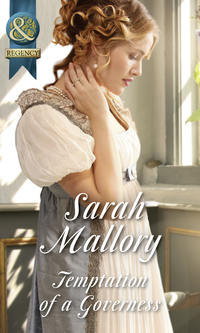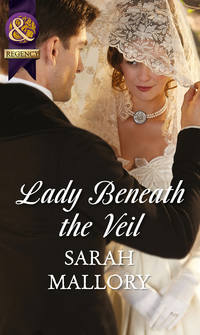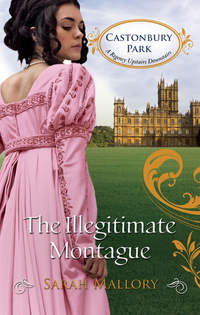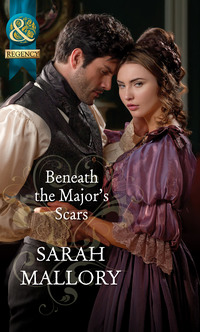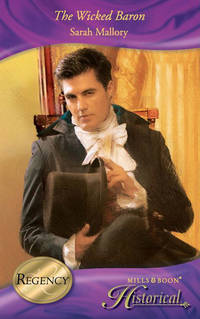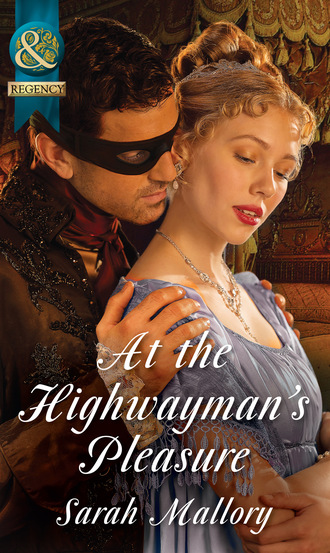
Полная версия
At The Highwayman's Pleasure
‘Mmm,’ he murmured, soft as a sigh. ‘Heavenly.’
Charity had forgotten her surroundings, the icy wind that was even now scattering tiny flakes of snow over them, the fact that he was a stranger. She had even forgotten that he was a highwayman, until he raised his head and barked out an order to the coachman and guard.
‘Keep yer hands on yer heads, me fine friends.’
His rough warning brought her back to reality. She pushed him away—no, he did not move, it was she who stepped back, hiding the trembling of her hands by vigorously shaking out her skirts. A glance behind her showed the coach still standing on the road, the driver and guard still sitting motionless on the box and the white faces of the passengers visible at the coach windows. It could only have been a minute that had passed, maybe two, yet Charity felt as if something momentous had occurred. She gave herself a mental shake. Good heavens, it was only a kiss, and she had been kissed before, but never had it had such an effect.
It was the excitement, she told herself sternly. Fear set your nerves on edge and made you feel the experience all the more keenly.
The highwayman was holding out his hand to her.
‘Having exacted my price from you, madam, you are now free to go on your way.’
Silently she took his hand and let him help her back into the carriage. He closed the door and she saw the glint of amusement in his eyes as he touched the barrel of the pistol to his hat brim in a mock salute. He stepped back and glanced up at the box.
‘Now, me lads, I’ll thank you to sit where you are a while longer.’
He whistled and the black horse trotted up to him. Charity noted the athletic way he leaped up into the saddle and galloped away, leaving everyone in a shocked, immobile silence.
As the hoofbeats faded, the spell was broken. The farmer began to rage about the impudence of such rascals while his wife fell back in her seat, fanning herself vigorously and declaring she could feel a seizure coming on. Betty muttered up a prayer of thanks and the guard clambered down to retrieve his shotgun and to ask if the passengers were all right.
‘All right? Of course we are not all right!’ shouted the farmer. ‘What’re you about, to let one rascally knave with a popgun cause us all such terror? Look! Look at my wife. Right terrified, she is. ’Tis a disgrace, I tell ’ee. One man on the road and all you can do is drop your gun!’
‘Aye, I dropped it right enough,’ replied the guard, affronted. ‘He were threatenin’ to shoot me head off.’
‘So you let ’im get away with daylight robbery!’
‘As I recall, he didn’t take anything o’ yours,’ the guard retorted.
‘He stole the mail,’ countered the farmer’s wife.
‘And he assaulted my mistress,’ added Betty.
‘Which is why I came to enquire if she was hurt.’ The guard turned his attention to Charity. ‘Well, ma’am? Have you suffered any injury?’
Charity was reliving the memory of being imprisoned in those strong arms and her lips still burned from the highwayman’s kiss, but she would never admit that to a soul.
‘N-no, I am a little shaken, but I am not hurt.’
‘The rascal stole your brooch, Miss—’
‘Hush, Betty. It was a mere trinket.’ She turned to the guard. ‘Please, it is not important. Let us get on.’
The guard seemed satisfied with that. He nodded.
‘Then we’ll be on our way. We’re stopping at Beringham to change horses, so we will report the incident then.’
He closed the door and the carriage rocked as he climbed back onto the box beside the driver.
‘Aye, and I’ll be reporting this to the mail company,’ muttered the farmer as they set off again. ‘Never seen the like, a guard and driver made to look no-how by a lone horseman—why, between the three of us we could have taken him!’
‘That’s just what my mistress sug—’
Charity dug her maid in the ribs. She summoned up a bright smile.
‘Well, I for one am glad we came off so lightly. I pray we will have no more excitement before we reach our destination.’
* * *
Her prayers were answered, and the short journey into Beringham was uneventful. The passengers were invited to go into the inn while the constable was summoned.
After the chilly carriage, the sight of the inn’s blazing fire was very cheering, and when the landlord had supplied them all with a cup of hot coffee, even the farmer’s mood improved. The local constable turned out to be a stolid individual called Rigg who painstakingly wrote everything down, explaining that the magistrate would want to have all the details reported to him. Once the guard and driver had given their version of events, he turned to the passengers. Charity glanced at the clock. They should have been at Allingford by now, but the delay could not be helped, so she stifled her impatience and gave her attention to the matter in hand.
‘He got down off his horse and ordered you all out o’ the coach, you say?’ The constable looked at his notes. ‘So you had a chance to get a good look at the fellow, eh?’
The farmer shook his head. ‘Nay, ’twere too dark to see out by then.’
‘That’s true,’ affirmed Betty. ‘And he soon ordered us all back inside, except Mrs Weston.’
‘Weston?’ The constable looked up, all attention. ‘Mrs Weston, you say? Are you—?’
‘I am an actress.’ She smiled to atone for interrupting him. ‘Mrs Weston is my stage name.’
The farmer’s wife sniffed, her earlier smiles replaced now with a more haughty stare.
‘Ah, I see.’ The constable looked even more interested in that. ‘You’ll be on your way to Allingford, then.’ He added, with something like a sigh, ‘We have no theatre in Beringham.’
‘Nor any other entertainment,’ grumbled the farmer. ‘Even the inns ain’t what they was.’
‘But she was closest to the villain,’ put in the farmer’s wife, ignoring her husband. ‘In his arms, she was, and he was makin’ free with her—’
‘I beg your pardon, but it was no such thing,’ declared Betty, bristling in defence of her mistress. ‘He ravished her, quite against her will.’
Charity blushed and shook her head at the bemused constable.
‘He stole a cheap brooch, that is all.’
‘And he kissed her, too!’ cried the farmer’s wife in outraged accents.
‘Very understandable, ma’am, if you don’t mind my saying so,’ returned the officer of the law, then coloured to the tips of his ears.
‘It means she saw him better than the rest of us,’ said the farmer. ‘Right tall fellow, he was.’
‘Ma’am?’ The constable turned his eyes towards Charity, who shrugged.
‘I would not have said he was that tall. About medium height, I think.’
‘Bigger, surely,’ argued the farmer’s wife. ‘He towered over you!’
Charity remembered it only too well, but she shook her head now.
‘I was cowering a little.’
It was a lie. She had felt no fear in her encounter with the highwayman. There had been anger, yes, and excitement, but she had never felt afraid of him. The farmer’s wife was continuing.
‘A big man, all in black and astride a great black ’oss. And he had right broad shoulders.’
Charity remembered him coming close, the feeling that he was enveloping her in his shadow.
‘His coat was very large,’ she said. ‘It had several capes on the shoulders, which gave the impression of width.’
‘Did you see his face, or his hair—did he wear a wig, perhaps?’
‘He never removed his hat. And he wore a mask, so I could not see his countenance.’
That much was true. She could not even say with any certainty what colour his eyes had been, only that they were very dark and had bored into her, as if he could see into her very soul.
‘His horse, though—that should be easy to find.’ The coachman tapped out his pipe upon the hearth and set about refilling it. ‘It was a stallion, a great dark beast, pure black from mane to hoof.’
‘And he weren’t from around these parts,’ added the guard. ‘Irish, I do reckon.’
‘Aye,’ agreed the farmer. ‘Definitely Irish, no mistaking that brogue.’
Charity said nothing. She had spent her life working with actors and mimics and suspected that lilting Irish accent had been as false as the inflection she had adopted in London to make everyone think she had grown up south of the Thames. The landlord, who had been hovering by all the while, nodded sagely.
‘The Dark Rider. They say he comes from Dublin.’
‘Oh, Lord bless us!’ exclaimed the farmer’s wife, falling back in her chair. No one paid her any heed.
‘Nay, I thought it was Shannon,’ said the coachman, ‘But that’s who I guessed it might be. I’ve never seen him afore, though.’
‘The Dark Rider?’ asked Betty nervously.
‘Aye.’ The landlord nodded. ‘He’s been working the roads around Beringham for a year or so now. Robbed Absalom Keldy and his wife afore Christmas, he did.’
‘And I was told he took fifty guineas off Mr Hutton only last month,’ put in the coachman.
The farmer snorted. ‘Well, he can take what he likes off Hutton, with my blessing. Self-serving old scoundrel that he is!’
‘Aye,’ agreed the landlord, ‘but the Dark Rider’s capricious, see. You never know what he will take. It might be no more than a kiss from a pretty woman, other times it’s a purse.’
‘He always takes the mailbag,’ added the constable, ‘although they turn up again at the roadside after he’s looked through ’em. Searching for money, I dare say, although who’d be foolish enough to send money in a letter, I don’t know.’
The landlord winked at Charity. ‘He’s got the ladies around here all of a pother. They all wants to meet ’im. Many think he’s a gentleman in disguise, kicking up a lark.’
‘Gentleman or no, he’ll be dancing on the gibbet when he’s caught,’ growled the constable. ‘I think that’s all I needs for now, so you can be on your way.’ His unhurried gaze swept over the passengers. ‘You’d best tell me your direction, in case we needs to speak to you again, or to ask you to identify the culprit.’
‘Well, you’ll find us at Broad Ings Farm.’ The farmer’s buxom wife stood up and shook out her skirts. ‘And we’ve paid our fare to the next crossroads, so the quicker we get moving the better.’
‘And you, Mrs Weston?’
Charity spread her hands.
‘I have no idea where I shall be living in Allingford, but you can always find me at the theatre.’
They were ushered back to the coach. The driver was anxious to make up time and they rattled quickly through the darkness to the crossroads, where the farmer and his wife alighted, leaving Charity and her maid with the carriage to themselves.
‘Well, well, what a to-do, mistress! We should have been in Allingford three hours since.’
‘I know, Betty. I hope Hywel has a dinner put aside for us. All this excitement has given me an appetite.’
Betty gave a disapproving sniff.
‘Don’t know how you can be thinking of food when you were ravished by that scoundrel! Still, it couldn’t have been that bad, since you didn’t have to make use of your hatpin, and I know full well that you’ve used it on more than one occasion when an admirer has been a bit too familiar.’
Charity did not reply, but settled back in her corner and closed her eyes. To be truthful, she had not even thought of her hatpin when the highwayman had pulled her close. She had not thought of anything. She had known ladies in the audience to swoon at the sight of a particularly handsome actor, but had always considered them very silly beings. Now she could understand them a little better, for the powerful attraction she had felt for the audacious rascal had made her light-headed, and she had come very close to swooning herself.
Heavens, what was she about?
You are growing old, my girl, she told herself sternly. Old and lonely, if you must needs faint at the attentions of a stranger.
The lights of Allingford interrupted her musings and Charity was grateful to put aside her disturbing thoughts. A servant was waiting to escort them the short distance from the inn to a modest house where they were admitted by a very superior manservant who announced that Mr Jenkin was waiting for Mrs Weston in the parlour. As the servant opened the door she saw a tall, distinguished-looking man with silver hair standing before the fire. Upon her entrance he came forward to greet her.
‘I was beginning to think you had changed your mind about coming to work for me.’
Laughing, she gave him her hands and pulled him close to kiss his cheek.
‘Not a bit of it, Hywel! And good evening, my dear. We were delayed on the road. A highwayman, no less!’ She turned away to remove her cloak and bonnet so that Hywel would not see her face; he knew her so well he would see in an instant that there was more to the encounter than she was telling him. ‘He is well known in this area, I believe—the Dark Rider. A very poor example of his kind, in my opinion.’
‘I have heard of him.’ He handed her a glass of wine as she came back towards the fire. ‘What did he take from you?’
‘He stole a trinket, a cheap brooch of mine.’
‘And did he demand a kiss from all the ladies?’
She blushed.
‘Yes.’
‘Of which you were by far the prettiest.’
Her mouth twisted in a little moue of distaste.
‘Blonde curls and blue eyes! You know I do not rate my milk-and-water colouring.’
‘You are a fine actress, my dear, but your beauty—your milk-and-water colouring, as you call it—has contributed no small part to your success.’ He invited her to sit beside the fire and lowered himself into a chair opposite. ‘How did you like Scarborough?’
‘Very much.’ She sent him a twinkling look. ‘I was compared very favourably with Mrs Siddons.’
‘And now you will take Allingford by storm. I am very grateful that you have deigned to grace my little theatre with your presence.’
‘Nonsense, you know I owe everything to you. When you wrote to tell me you had lost your leading lady, how could I refuse to help you? After all, I owe you everything, for taking me in and looking after me all those years ago.’
‘I had my reward—you are a natural actress and your success reflected well upon my travelling players, so well that investors were persuaded to join me in building the theatre here.’
‘Yet still you encouraged me to try my luck in London.’
‘Your talent deserves a wider audience.’ He sat back, smiling. ‘I looked out for you in the newspapers—Agnes Bennet, darling of Drury Lane! How long ago was it, five years?’
‘About that, yes.’
‘But you quit London just as you were making a name for yourself. Why was that, my dear?’
Charity cradled her wine glass in her hands.
‘I fell in with a bad crowd. When I realised how bad I was disgusted, with myself as well as with them. I decided to leave that life, and Agnes Bennet, behind me.’ She gave a wry smile. ‘It was a miracle that I escaped with my virtue intact.’
‘So you are Charity Weston again.’
‘Yes, and I have spent the last few years touring the country, building a new career for myself.’
‘And doing very well, if the reports are to be believed.’ Hywel got up to fetch the decanter and refill their glasses. ‘So why did you come to Allingford, my dear?’
‘Why, because you asked me—your leading lady had contracted inflammation of the lungs and retired to Worthing with her husband.’
‘When I wrote I hardly expected you to accept.’
She spread her hands. ‘I wanted to come back to the north.’ Her eyes twinkled. ‘Being able to play in a theatre rather than an inn or a barn is very welcome, Hywel, and when you told me you were the owner and manager here I could not help myself!’
‘Away with your flattery, baggage! Please do not mistake me, my dear, I am delighted to have you rejoin my theatre. Many of your old friends are still working for me. But it is very close to your old home. And to your father.’
She shrugged. ‘Saltby is several miles away. I doubt Phineas ever comes to Allingford, and it is even more unlikely that he would visit the theatre.’
‘But he is no longer at Saltby, my dear. He lives in Beringham now.’
She sat up. ‘So close?’ She chewed her lip, frowning, then said slowly, ‘It matters not. I am no longer afraid of him. Besides, I am tired of my wandering life, Hywel. I am minded to settle down, and where better than Allingford, where I can continue to work in the theatre?’
‘But using your real name—is that not rather a risk? Weston is bound to take it amiss when he discovers you are here.’
‘I have hidden behind a stage name for too long. I have accepted the courtesy title of Mrs Weston, but I will go no further. I want to be myself now.’ She sipped her wine. ‘I have heard nothing of Phineas since I left.’ His brows lifted and she continued, ‘I stopped calling him “Father” years ago. He does not deserve the title. Is my stepmother still living?’
‘No. She died several years ago, before he moved to Beringham. He is a man of property now. It appears your stepmother left him a tidy sum.’
Charity looked up, surprised. ‘Really? I knew he had married her for her dowry, but I had thought it was all spent.’
‘Apparently not, since he came to Beringham a man of some means. He has married again and his wife brings with her a small fortune. He is now a magistrate, too.’
‘Is he indeed?’ She grimaced. ‘Poor Beringham.’
‘Very true. Thankfully we have a county border between us. He rules with a rod of iron and will allow no theatres or entertainments in his area.’ He grinned. ‘All the better for me, of course, since those who want to see a play must come to Allingford.’
‘It must irk him dreadfully to know people are free to enjoy themselves here. I wonder if he is aware that the theatre in Scarborough was built by a clergyman? He would certainly not approve of that! Phineas believes salvation can only come about through suffering.’
‘As long as it is not his own.’
She laughed and said bitterly, ‘Of course. He was always able to justify his own comfort.’
‘He and his wife live in very grand style now,’ Hywel told her. ‘He has a fine house in Beringham. It is stuffed full of works of art, I am told, some of quite dubious quality, but expensive nevertheless. And he has set up his own stable, with a fancy carriage to take him and his lady about the country.’
Charity gazed into the fire, wondering if this third wife was any happier than the first two. She had never forgotten her mama’s anxious careworn face, the way she would jump at shadows, always afraid of incurring her husband’s wrath. When she died, Phineas had immediately taken another wife, a kindly woman who had soon been broken by his cruelty and become a meek, silent figure in the house. Charity shuddered.
‘Thank goodness I am no longer part of that family.’
‘Yet the connection is sure to be made,’ said Hywel. ‘Some in Beringham will remember that Phineas once had a daughter.’
‘That was thirteen years ago, Hywel. I will never acknowledge the connection and I doubt Phineas would want it known. The past is dead to me.’
He looked unconvinced.
‘Do you still suffer the nightmares?’
She shrugged. ‘Rarely. Although, I did wonder, coming here—’
Hywel laid his hand on her arm.
‘You are safe enough here, Charity. Weston has no jurisdiction in Allingford. And you can rely upon my protection.’
She reached out and briefly took his hand.
‘I know that, Hywel. You have always been a good friend to me. But enough of this dull talk. Tell me how you go on here and what you have chosen for my first role!’
‘The theatre is doing very well—my players are good and reliable. I thought, for your first appearance, you should play Mr Sheridan’s sentimental heroine, Lydia Languish.’
‘And will you be Captain Absolute?’
He shook his head, laughing. ‘I am too long in the tooth now to play the lover. Will Stamp takes those roles now.’
‘Young Will? I remember he had just joined you when I left.’
‘And proved himself a good actor,’ said Hywel. ‘I shall play his father, Sir Anthony.’
‘Do you have a script for me? It is a while since I played Lydia.’
‘Of course. I shall furnish you with one tomorrow when I take you to the theatre to meet my cast.’
‘And I must find myself somewhere to live.’
‘You are quite welcome to stay here for as long as you wish.’
‘Thank you, Hywel, but I thought to rent a little house for myself.’
‘You will need a manservant. I know just the fellow—’
‘No, no, at least, not yet. Betty can do all I need—Betty Harrup, my maid and dresser. She has been with me for several years and is upstairs even now unpacking for me. We have been used to fending for ourselves and I shall be quite content.’ A mischievous chuckle escaped her. ‘And I shall not be asking you to fund me, Hywel. I have invested well enough and have a comfortable income now.’
‘In that case, I shall find for you all the most suitable properties for a woman of substance. I shall puff off your fame quite shamelessly and Allingford’s landlords will be falling over themselves to provide a house for you. We have three weeks before we open again, so you have plenty of time to make yourself at home here. But enough of that. I had dinner put back and I am sure you must be hungry.’
‘Ravenous, my dear. Shall I go upstairs and see if Betty has unpacked for me, or will you allow me to dine with you in all my dirt?’
He laughed. ‘Let us dine now, by all means! A little dust on your skirts will do no harm.’
They passed the rest of the evening comfortably enough, catching up on all that had happened since they last met, and despite the nagging worry of knowing her father lived in the neighbouring town, when Charity retired to bed there were no nightmares to disturb her slumbers. Instead she dreamed of a masked man on a black horse.
* * *
Charity soon found a home of her own in Allingford. In less than a week she had moved into a snug little house in North Street. It took only a couple days to make it comfortable, and on the third evening Charity was able to sit down in the little sitting room to study her script of The Rivals, ready for the rehearsals, which were to start in earnest the following day.
‘I’ve brought in more coals for the fire, Miss Charity.’
‘Thank you, Betty. You need not wait up for me, I shall see myself to bed.’
The maid dropped the bucket on the hearth and straightened, bending a fond but frowning gaze upon her mistress.
‘Now, don’t you be sitting up ’til all hours straining your eyes, ma’am.’
‘I promise you I won’t,’ said Charity with a smile. ‘Goodnight, my dear.’
Betty went out again and soon she heard her stumping up the wooden stairs. Charity turned back to her script, but she could not give it her full attention, for she was aware of the creaks and sighs as the unfamiliar house settled down for the night. Once she heard a soft thud and she took her candle into the back room to check that the door into the yard was secure. Her candle flickered and she looked around a little nervously.
Everything was strange and new, but she comforted herself with the thought that soon she would know every nook and creaking floorboard of the little house. She went back to the sitting room, but the fire had died down and she decided she would not waste more coal on it.
‘I shall go to bed,’ she told the shadowy corners. ‘The Rivals must wait until tomorrow.’
She went upstairs and as she passed the first door she heard the rhythmic snores coming from her maid. There were two more rooms in the attic, but Charity had insisted Betty should sleep in one of the two chambers here on the first floor. Smiling, she made her way to her own chamber. It was at the back of the house, and she had chosen it because she thought it would be much quieter than the room overlooking the street. As she entered, her candle flickered and she saw that the window was not fully closed. She crossed the room, leaving her candle on the dressing table as she passed. She pushed down on the heavy sash and was just slipping the catch into place when she heard a soft chuckle behind her and a deep voice said, ‘Faith, me darlin’, but I’d forgotten how beautiful you are!’


